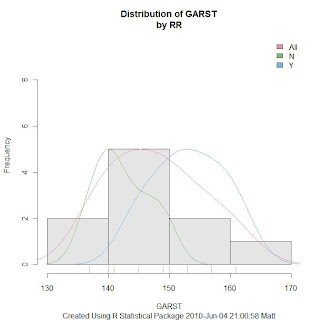In a previous Agweb post I pointed out how new social media technology has allowed farmers and industry advocates to take a stand in great numbers against many short sighted views and elitist agendas. I’m not sure this would have been possible with traditional media.
The problem is many commentators only like to talk about having intellectual discussions about the issues they support (climate change, biotechnology, soda taxes, gun control, regulation, bailouts, stimulus) but they never actually want to engage in discussions about them. That way, they can always claim ownership of 'science' and 'intellect' but never show their cards revealing how empirically depraved their policies really are. The recent media coverage (more like libelous slander) and discussion about Rand Paul is a case in point.
In a recent TIME magazine article Thomas Woods illustrates the problem:
"It is true that there are certain things that libertarians believe that will seem just shocking and scandalous to most people unless we're given 10 minutes to explain ourselves, but that's about nine minutes more than anyone in modern politics gets.”
Instead of engaging Rand Paul in a discussion about constitutional principles and economic theory critics in the media preferred to limit the conversation to a proxy name calling session that left the public with impressions of extremism and racism. With traditional media, it is very difficult to get the whole story. We’ve seen this lot in agriculture with celebrity authors and novelty film makers in how they depict the industry.(like the recent articles in TIME magazine, movies like King Corn, and HBO specials on factory farms) But with the new liberated social media, lots of viewpoints can be shared and evidence can be vetted.This is likely reason so many Americans turn to alternative media for their news, as indicated by a Zogby poll back in 2008 that found:
(the) “Internet is the top source of news for nearly half of Americans; Survey finds two-thirds dissatisfied with the quality of journalism” and “67% View Traditional Journalism as “Out of Touch”
A genuinely educated electorate (thanks to alternative media) easily finds flaws in tired political tactics. As I mentioned in a past post, politicians are starting to be held accountable for making up their own facts to support things like soda taxes and climate change legislation. At first alternative media was embraced by many politicians, thinking that enlightened minds would translate into overwhelming support (and money) for their policies. Now politicians and commentators have realized that free speech and 'liberated minds' could make it difficult to force feed policy agendas to voters armed with information. One thing this has also shown is how robust and competitive the market for news and information has become with new technology. This undermines any logical support for free speech infringing ideas like imposing the 'fairness doctrine' on talk radio. In response we are starting to see lots of ideas proposed to get a handle on the mass use of alternative media in the exercise of free speech.
From a recent article in the Washington Times:
"The bureaucracy sees it as a problem that the Internet has introduced a wealth of information options to consumers, forcing media companies to adapt and experiment to meet changing market needs."
"In other words, government policy would encourage a tax on websites like the Drudge Report... Such a tax would hit other news aggregators, such as Digg, Fark and Reddit,"
"A 5 percent tax on consumer electronic devices such as iPads, Kindles and laptops ..Other taxes might be levied on the radio and television spectrum, advertising and cell phones."
Already, hidden taxes on data have been incorporated into past proposed federal budgets. An article from Reuters last year indicates that yearly fees for spectrum licenses are proposed to rise 1000% over the next decade.
With increased use of alternative media, falling poll numbers, and an electoral war being waged against incumbent candidates, alternative media has become America’s next great villain. Perhaps in the minds of the Cass Sunstein’s of the world it needs its own version of a sin tax to nudge us into viewing only government approved websites and blogs.
‘Congress shall make no law .. abridging the freedom of speech, or of the press; or the right of the people peaceably to assemble.’ Constitution of the United States
References:
Obama proposes to boost public airwaves fees
WASHINGTON Reuters
Thu Feb 26, 2009 4:48pm
FTC floats Drudge tax
Journalism can reinvent itself without government 'help'
The Washington Times June 4,2010
How the Pauls (Ron and Rand) Are Reshaping Politics
TIME By Michael Crowley May 27,2010
